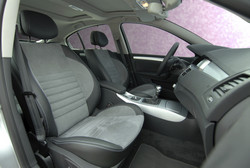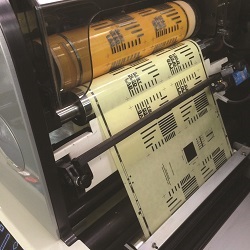Environmentally friendly fabrics for cars
Europe's textiles and clothing industry continues to lead the world thanks to its creativity, innovation and incomparable sense of style. In the face of increasingly fierce global competition and low-wage manufacturing elsewhere, the continent's approximately 200 000 companies have achieved an impressive annual turnover of EUR 215 billion. Of these, 95 % are small and medium-sized enterprises (SMEs). The automotive industry aims to become greener by focusing on its environmental impacts. One example is its search for an alternative to plastic textile components. The EU-funded BIOFIBROCAR (Melt spun fibres based on compostable biopolymers for application in automotive interiors) project was established to find the solution. Researchers therefore developed new textiles from fibres made of polylactic acid (PLA) derivatives as a substitute for the conventional polyester fibres. PLA is a biodegradable thermoplastic polymer that comes from renewable sources such as corn starch or sugar cane. The consortium ensured that the new textiles meet all industry requirements, paying careful attention to safety, thermal resistance, and minimisation of odour and volatile particle emission for vehicle interiors. Some nanoadditives will have intumescent properties, expanding in response to heat to protect the material underneath. Others can reduce or eliminate odours or make the textiles less abrasive to the skin. Project partners reviewed currently available materials in terms of fibres and fabrics, which were studied and characterised under laboratory conditions. The characterisation activities assured compliance with automotive industry standards, which were also collected by the consortium. A prototype was developed that could be used in car door panels. Testing and validation of the prototype showed that its thermal and mechanical properties were the same as for the non-renewable materials. BIOFIBROCAR bio-derived textile technologies for the automotive industry will bring a welcome boost to partner SMEs in the compounding, additives, spinning and weaving/laminating sectors. They are likely to have more broad-reaching effects as well. The products should interest other transport sectors and the biodegradable fibres will also help support recyclers in the long term.







